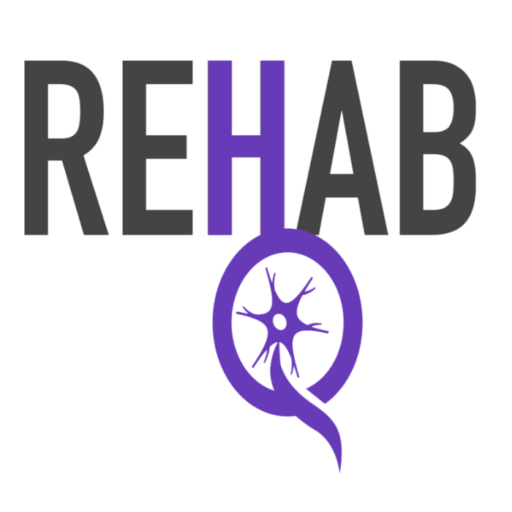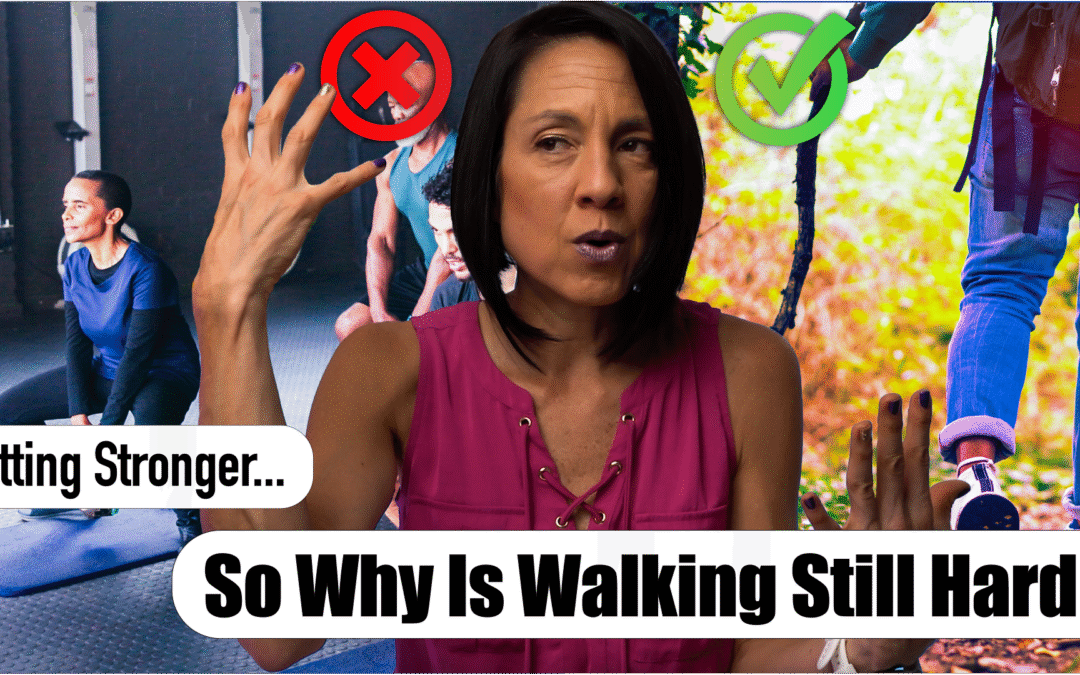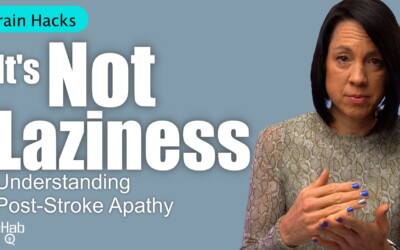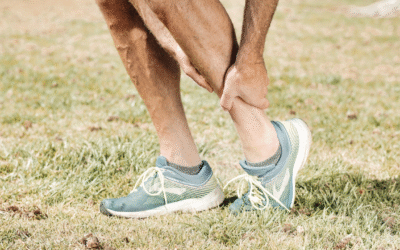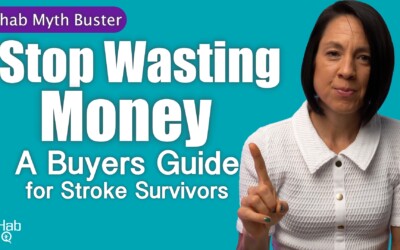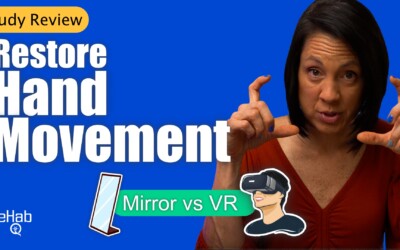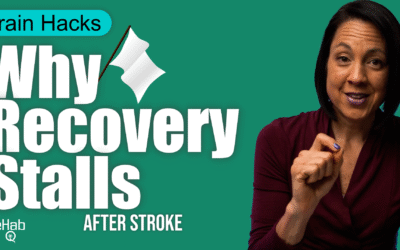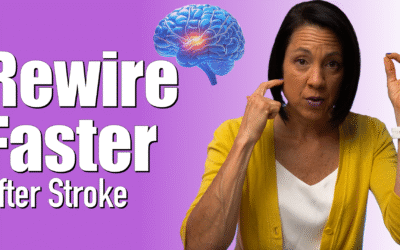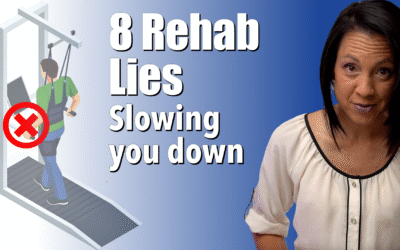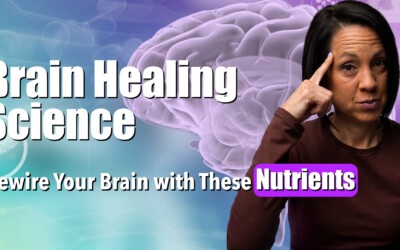Stroke Recovery Tips: When Exercises Don’t Seem to Work
Is it possible to be making progress after a stroke or neurologic injury and still feel like your movement is getting stiffer, heavier or just plain harder?
Absolutely. And let me tell you, it is one of the most frustrating things I see in recovery.
So why does this happen? Why can you be “getting stronger” but feel like your movement quality is getting worse? And more importantly, how do you measure progress in a way that actually helps you get better?
Strength vs. Motor Control – They’re Not the Same Thing
A common frustration I hear:
“I feel stronger, but my walking feels heavier.”
“Some days my leg won’t move at all.”
“I fatigue so quickly, even though I know I’m improving.”
This all comes down to understanding the difference between strength and motor control.
When you’ve had a stroke, it’s not that your muscles are simply “weak.” The problem is that the operating system, your brain’s code that controls movement has been damaged.
Think of your brain like a computer. Your muscles are the keyboard and they still work. But the hard drive that runs the programs? That’s where the damage is. When a stroke wipes out part of the “code,” your muscles can’t execute normal movement patterns anymore.
So what do most people do? They fall back on what they know: strengthen, strengthen, strengthen. But strengthening alone often reinforces abnormal movement patterns (like spasticity or those stiff, locked movements). And the more you push into those, the more your brain rewires around them. We call that negative neuroplasticity.
So What Can You Do?
Focus on Motor Control
Here are some strategies I use with my patients to turn all that effort into quality movement that feels better and translates into daily life.
1. Sensory Input Matters
Things like tapping, rubbing, vibration, or even just moving the arm or leg passively, these all remind your brain: “Hey, there’s a limb here, pay attention!”
It’s like reintroducing your brain to your body again.
2. Prioritize Quality Over Quantity
Don’t just celebrate movement for movement’s sake. Watch how it’s moving.
If your arm rotates in oddly when you lift it or your hand closes with your thumb tucked, stop and adjust. Reinforcing abnormal patterns makes them harder to break later.
3. Break Skills Down
Walking is a perfect example. Instead of endless squats and lunges, focus on the exact part of walking that’s giving you trouble.
- Practice weight-bearing without locking your knee.
- Practice swinging the leg without relying on abnormal patterns.
- Practice lifting your ankle with your knee straight.
This helps rebuild control, not just strength.
But Also… Don’t Forget to Just Walk
Sometimes, the best thing you can do is the obvious: walk more.
I see so many people get caught up in finding the “perfect exercise” when what they really need is more time on their feet.
Just like toddlers, they don’t get drills, they just keep practicing until it clicks.
The Big Takeaway
Feeling like your movement is “worse” while you’re working hard can actually be a sign that your brain is still figuring things out. The key is shifting your focus from strength alone to motor control, and making sure the movements you’re practicing are high-quality and moving you closer to normal function.
And if you want more structure and guidance on how to do this in your own recovery, that’s exactly what we’ve built inside our Rehab HQ membership program. You get access to tools, exercises, and step-by-step guidance so you can take full ownership of your rehab, on your own terms.
You can learn more or sign up here.
I hope this helps connect some dots for you.
Remember: Progress isn’t always a straight line, and sometimes “worse” movement is just part of the path to better.
Articles you may be interested in
Stroke Recovery and Apathy: What It Is and How to Overcome It
What’s Really Going On When Motivation Disappears After Stroke Recovering from a stroke is a journey that requires strength, patience, and persistence. But for many stroke survivors, the hardest part isn’t weakness, fatigue, or memory loss. It’s something less visible...
Spasticity or Weakness? Understanding Your Stroke Symptoms
How Can You Tell If It’s Spasticity or Weakness After Stroke? https://youtu.be/3QR9D4rBNhc If you’ve had a stroke, you’ve probably heard a few of these words tossed around: spasticity, weakness, stiffness, foot drop. They might all sound similar, but they each tell a...
Master Ankle Mobility: Exercises for Better Walking
Ankle Mobility Exercises to Boost Balance and Walking Ankle stiffness is one of the most common issues people face after a stroke or any neurologic injury. It can make walking harder, cause your toes to catch, or even affect your balance. But here’s the thing,...
Improve Focus and Attention After Stroke
Stroke Recovery: How to Regain Focus and Attention Faster https://youtu.be/ul0wUgXravo When most people think about recovery after a neurologic injury like a stroke, brain injury, or MS, they often focus on the physical side. Strength. Repetitions. Muscle activation....
Should You Spend Money on Stroke Rehab Devices?
Are Trendy Rehab Treatments and Devices Worth It? Here's My Honest Take https://youtu.be/T69LavHLdIQ Should you be spending your hard-earned money on all those rehab devices popping up in your social media feed? And if so, which one is actually worth it? The truth?...
Restore Hand Movement After Stroke with Mirror Therapy
Mirror Therapy & VR: Stroke Recovery for the Hand https://youtu.be/OeThZMwJt40 If you’ve lost movement in your arm after a stroke, you’ve probably wondered: “Is my arm just weak, or is something deeper going on in my brain?” That’s not because your muscles forgot...
Stroke Recovery Plateau: What to Do
Why Stroke Recovery Stalls and How to Push Through Recovery may feel stuck, but progress is still possible. Here’s how to keep improving after a plateau. https://youtu.be/w6xZZpx7tDY Recovering from a stroke or neurologic injury can feel overwhelming. Walking,...
Boost Stroke Recovery: 3 Brain Habits That Actually Work
Want to Rewire Your Brain Faster After Stroke? Try These 3 Habits https://youtu.be/iFcjDtHrrwM If you’ve been on this neuro-recovery journey, you know it can feel like progress is slow. You do your exercises, you follow instructions, but sometimes your brain seems…...
Stroke Recovery Myths Debunked: The Truth About Healing
8 Neuro Rehab Myths That Are Holding You Back (And What to Do Instead) Debunking Common Myths About Neurologic Recovery https://youtu.be/chTfi1d5kn4 If you’ve ever been told that your recovery after a neurologic injury has an expiration date, or if your physical...
Best Foods for Brain Healing and Mental Clarity
Brain Recovery Nutrition How Diet Fuels Healing and Focus https://youtu.be/P5UJMJJRVdw When it comes to stroke recovery, exercise and rehab often take the spotlight. But what if the foods you eat and the nutrients inside them could also play a powerful role in healing...
